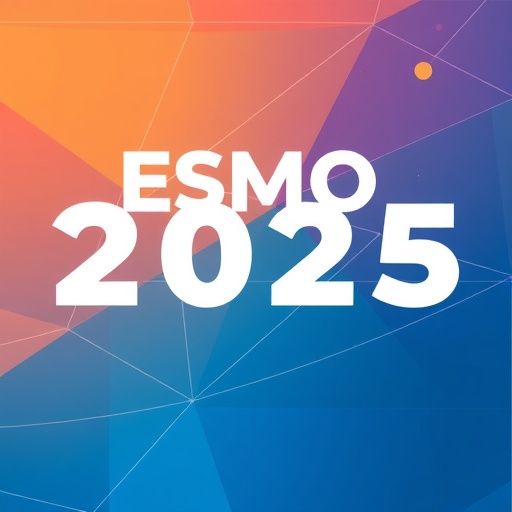Lugano, Switzerland, 13 October 2025 – The upcoming ESMO Congress 2025, set to unfold from October 17 to 21 in Berlin, Germany, constitutes a landmark event that promises to reshape the horizons of oncology research and clinical practice. This congress gathers the world’s preeminent oncology experts, who will unveil groundbreaking data and participate in high-level dialogues specifically designed to advance cancer care through scientific innovation. With a hybrid format enabling both onsite and virtual attendance, the event ensures broad accessibility to pivotal updates across a multitude of cancer research disciplines.
One of the defining themes of ESMO 2025 is the application of precision oncology bolstered by biomarker identification and artificial intelligence (AI). Innovative sessions will highlight the integration of AI algorithms to refine patient stratification and prognostication, facilitating the optimization of immunotherapy efficacy in diverse cancer types. Leading research abstracts demonstrate how machine learning models can predict immune checkpoint blockade responses by synthesizing multi-omic datasets, ultimately ushering in more personalized therapeutic regimens with higher success rates.
A prominent focus at the congress is the emerging class of antibody-drug conjugates (ADCs), with particular attention on trastuzumab deruxtecan (T-DXd) in early-stage breast cancer. ADCs represent a sophisticated strategy that combines the targeting precision of monoclonal antibodies with potent cytotoxic payloads, significantly enhancing tumor-killing capacity while minimizing systemic toxicity. Cutting-edge results from phase 3 trials address the efficacy of ADCs in previously underexplored malignancies including bladder and lung cancers, signaling a paradigm shift in oncologic pharmacotherapy.
Dose optimization strategies in oncology are also poised to gain traction, especially as circulating tumor DNA (ctDNA) assays come into clinical use as dynamic biomarkers of minimal residual disease. Presentations underscore how ctDNA-guided treatment adjustments are being leveraged to avoid overtreatment in urothelial carcinomas and colon cancers, reducing unnecessary exposure to chemotoxic agents without compromising overall survival. Such precision dosing heralds a more nuanced approach to balancing treatment efficacy against patient quality of life.
The congress will delve into novel immunotherapeutic modalities for melanoma, including early-phase trials of cell-based therapies targeting rare melanoma subtypes. Experimental personalized vaccines composed of neoantigen peptides are showing promise in eliciting robust immune responses in patients with refractory disease or those lacking conventional immune biomarkers. These therapeutic vaccines reflect an evolving strategy to mobilize the patient’s own immune system and may redefine the management of advanced melanoma moving forward.
In genitourinary cancers, new combination treatments under investigation in phase 3 trials may soon expand the clinical arsenal for urothelial carcinoma and prostate cancer. These combinations integrate immune checkpoint inhibitors with targeted agents or chemotherapies to maximize antitumor effects while managing resistance pathways. The data anticipated from these trials have the potential to alter clinical guidelines and establish new standards of care within the genitourinary oncology space.
Immunotherapy continues to gain momentum with fresh insights into its application across challenging cancer settings. Notably, ESMO 2025 will showcase studies evaluating novel immunotherapy-based treatment options for ovarian cancer subtypes with few current effective treatments, emphasizing the persistent need for innovation in difficult-to-treat malignancies. Similarly, the congress will reveal promising results in immunotherapy combinations as potential first-line regimens in lung cancer, as well as targeted immune strategies in gastric cancer, illuminating the expanding frontier of immune-oncology.
The integration of biomarker-guided immunotherapy strategies is especially compelling in triple-negative breast cancer (TNBC), where immune-based therapies are increasingly combined with standard chemotherapy to improve response rates. New phase 2 and phase 3 studies are elucidating mechanisms by which immunomodulation enhances chemosensitivity, representing a beacon of hope for a historically aggressive breast cancer subtype with limited treatment options.
ESMO 2025 will open with an esteemed press conference featuring key thought leaders including ESMO President Fabrice André of the Gustave Roussy Institute and scientific co-chairs Myriam Chalabi and Toni Choueiri from the Netherlands Cancer Institute and Dana-Farber Cancer Institute, respectively. Their insights promise to contextualize the significance of presented data within the broader oncology landscape, underscoring the congress’s role in advancing evidence-based cancer care.
The congress design accommodates press engagement with daily briefings and comprehensive accreditation procedures, ensuring rigorous dissemination of research findings aligned with the strict embargo schedules. This commitment to transparent and timely communication reinforces ESMO’s leadership as an authoritative source of oncology advancements.
Beyond clinical trial data, the congress will provide critical discussions on the ethical, logistical, and regulatory implications of integrating AI and biomarker data into clinical decision-making. These conversations are vital to fostering equitable access and ensuring that technological advances translate effectively into improved patient outcomes at scale.
In sum, ESMO Congress 2025 emerges as an unparalleled scientific forum poised to drive transformative shifts in oncology through collaborations spanning precision medicine, immunotherapy, and next-generation therapeutics. The research showcased here will undoubtedly inform clinical guidelines and inspire future investigations aimed at conquering cancer’s most complex challenges.
Subject of Research: Advances in Oncology, Biomarkers, Artificial Intelligence, Immunotherapy, Antibody-Drug Conjugates, Vaccine Development, Cancer Treatment Optimization
Article Title: Pioneering the Future of Cancer Care: Insights from ESMO Congress 2025
News Publication Date: 13 October 2025
Web References:
– https://www.esmo.org/meeting-calendar/esmo-congress-2025
– https://cslide.ctimeetingtech.com/esmo2025/attendee/confcal/session
Keywords: Oncology, Artificial Intelligence, Vaccine Development, Cancer Immunotherapy
Tags: antibody-drug conjugates in cancer treatmentartificial intelligence in healthcarebiomarker identification in cancercancer care innovationsESMO Congress 2025hybrid conference formatimmunotherapy efficacy optimizationmachine learning in oncologymulti-omic datasets in researchoncology research advancementsprecision oncology developmentstrastuzumab deruxtecan updates





